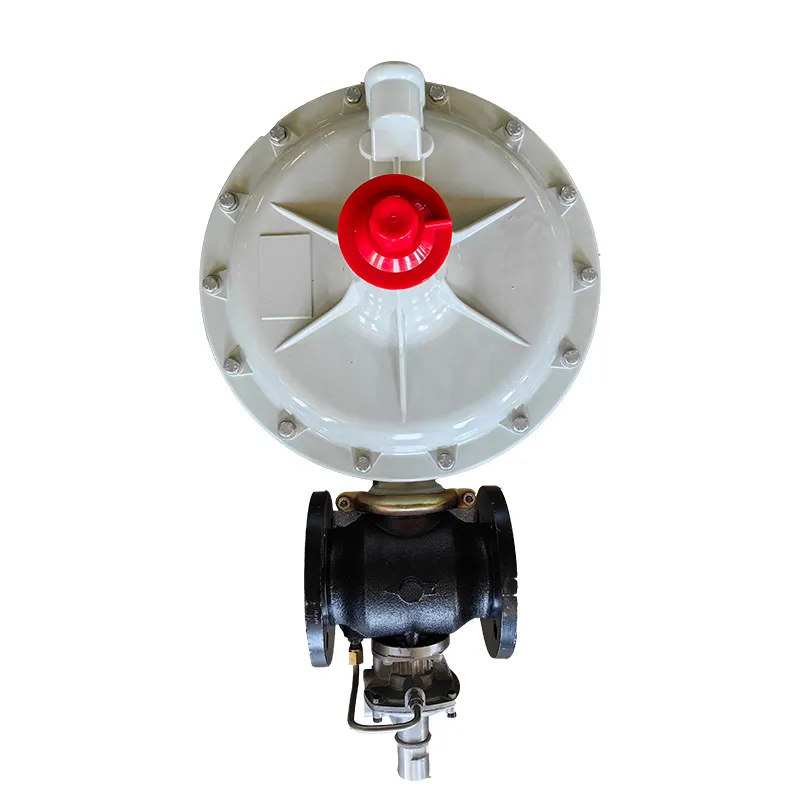
Dec . 10, 2024 14:55
Back to list
pressure vessel
Understanding Pressure Vessels Design, Applications, and Safety
Pressure vessels are critical components in various industrial applications, facilitating the storage and handling of gases and liquids under high pressure. Their design and manufacture are subject to stringent regulations and standards to ensure safety and reliability. In this article, we will explore the fundamentals of pressure vessels, their applications, and the essential safety considerations involved in their use.
What is a Pressure Vessel?
A pressure vessel is a container designed to hold gases or liquids at a pressure significantly different from the ambient pressure. They can be constructed from various materials, including steel, aluminum, and composite materials, and come in numerous shapes, the most common being cylindrical, spherical, and conical. The primary function of a pressure vessel is to contain substances under pressure, which can be due to either external conditions or the internal properties of the contained fluid.
Design and Standards
The design of pressure vessels is a critical process that requires meticulous engineering and adherence to established standards. Common design codes include the American Society of Mechanical Engineers (ASME) Boiler and Pressure Vessel Code (BPVC), which provides guidelines for design, materials, fabrication, examination, and testing. The choice of materials is influenced by the chemical nature of the contents, operating temperature, and pressure levels.
Proper engineering design includes calculating the thickness of the walls to withstand internal pressures, considering factors like corrosion, fatigue, and wear. Equipment such as pressure relief valves, which prevent excessive pressure buildup, is often incorporated into the design to enhance safety. The manufacturing process must also ensure that the vessel can sustain its intended operation over its lifetime.
Applications of Pressure Vessels
Pressure vessels play a crucial role in various industries
. Here are some prominent applications1. Chemical Industry In chemical processing, pressure vessels are used for reactions, storage, and separation of chemicals, including reactors, distillation columns, and storage tanks.
pressure vessel

2. Petrochemical Industry They are fundamental in oil and gas operations, storing crude oil, natural gas, and various refined products under high pressure.
3. Food and Beverage Industry High-pressure processing (HPP) technology in food safety and preservation utilizes pressure vessels to eliminate pathogens without affecting the food's quality.
4. Pharmaceutical Industry In the production of medicines, pressure vessels are used to create controlled environments for reactions and formulations.
5. Power Generation Steam boilers and nuclear reactors rely heavily on pressure vessels to contain steam and nuclear reactions safely.
Safety Considerations
Given the potential hazards associated with high-pressure systems, safety is paramount in the design and operation of pressure vessels. Regular inspection and maintenance are crucial to identify and rectify any signs of wear, corrosion, or fatigue. Pressure testing and non-destructive testing methods, such as ultrasonic inspections, are employed to ensure vessel integrity.
Moreover, operators must adhere to relevant safety regulations and conduct risk assessments to mitigate the chances of accidents. Appropriate training for personnel handling these vessels is also critical, ensuring they understand the potential dangers and the procedures to follow in emergency situations.
Conclusion
In conclusion, pressure vessels are indispensable in various industrial sectors, contributing to the safe and efficient operation of processes that involve gases and liquids under pressure. Their design and manufacture are guided by strict standards to mitigate risks associated with high-pressure operations. As industries continue to evolve, the importance of innovation and stringent safety measures in the field of pressure vessel technology remains vital to protect workers and the environment. As we move forward, ongoing advancements in materials and engineering practices promise to enhance the safety and efficiency of pressure vessels, underscoring their essential role in modern industrial applications.
Next:
Latest news
-
Safety Valve Spring-Loaded Design Overpressure ProtectionNewsJul.25,2025
-
Precision Voltage Regulator AC5 Accuracy Grade PerformanceNewsJul.25,2025
-
Natural Gas Pressure Regulating Skid Industrial Pipeline ApplicationsNewsJul.25,2025
-
Natural Gas Filter Stainless Steel Mesh Element DesignNewsJul.25,2025
-
Gas Pressure Regulator Valve Direct-Acting Spring-Loaded DesignNewsJul.25,2025
-
Decompression Equipment Multi-Stage Heat Exchange System DesignNewsJul.25,2025

